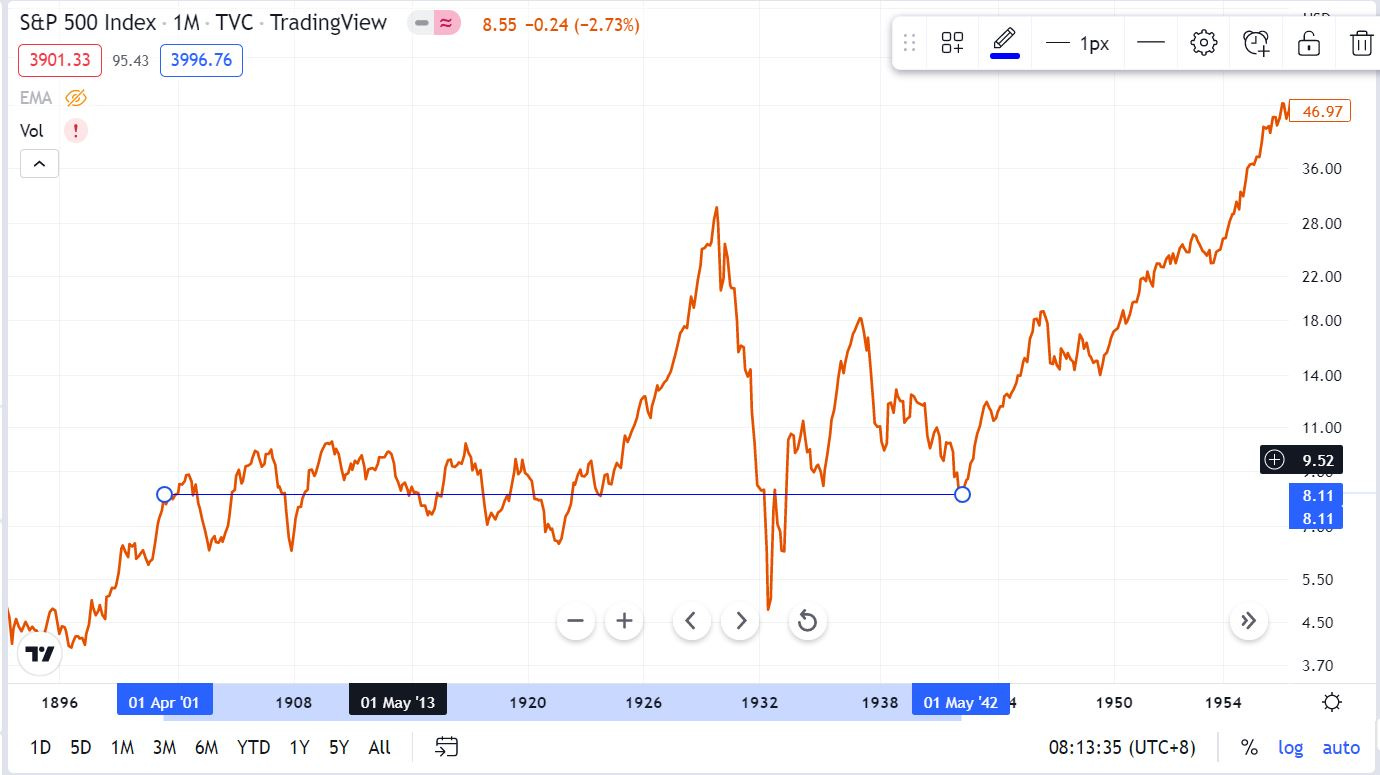My intention with this post is to question conventional wisdom. I’m not claiming that I’m correct, this is merely fuel for thinking. Let’s begin.
How many times have you heard it: don’t try to beat the market. Invest in a passive fund since the S&P 500 returns 8% a year and that’s the best you can hope for. The problem, I think, is that for many people that 8% return has become analogous to the laws of thermodynamics, as certain as gravity or billionaires flying their private jets to impoverished countries to wealthsplain why they can’t burn fossil fuels. But is an 8% return from the index really a fundamental right to bank on?
Going back in history
To be explicitly clear, I’ve cherry-picked the timing on these charts to support my argument. I’m so biased that politicians have begun asking me for advice. That being said, since passive investing has become writ gospel I don’t feel bad combating it with my own distortions. Still; do your own research. Zoom out on these charts and draw your own conclusions.
Let’s start with an index fund from turn of the century America. What happened if you put your money in on April 1st, 1900? Well, FORTY-TWO-FUCKING years later, at the nadir of a market dip, the value of your investment wouldn’t have grown a cent.
Let’s take a gander at the Japanese indexes.
As is commonly known, the Nikkei still hasn’t reached its previous all time high. If you dollar cost averaged into this market over time, you’re looking at somewhere around 50 to 150% returns over the course of 30 years. Hardly the guaranteed 8% returns of investing legend.
How about China?
Anything you invested in China before 2006 is doing OK, but what about the next 15 years? With a dollar cost averaging into the index you’re probably only breaking even. Thankfully most Chinese store their wealth in real estate which is still going stron… Never mind.
How’s that for depressing? No money in 20 years! Just as tens of millions of people are retiring. Ooooof.
What does the future hold?
I think it would be fairly uncontroversial to state that the coming decade is going to be more volatile than the previous epochs of global order and prosperity. Furthermore, as Mike Green has so eloquently described, passive investing has become a dominant force in the markets. To this day we’re still experiencing passive inflows which are keeping the markets afloat. However, what happens when the inflows switch to outflows as the boomers retire en-masse and start selling their assets?
I’m not a market expert or a financial genius, don’t take my word as gospel. However, I do think that there is at least a *possibility* that the fabled 8% returns from passive investing will fail to happen. I am going to go out on a limb and say that for young people today, I don’t think it will be as simple as stick everything in the S&P 500 and watch it compound for the next 40 years. The solution isn’t for us all to start day trading, but a little bit of active management is probably going to pay off in this brave new world we find ourselves in.








